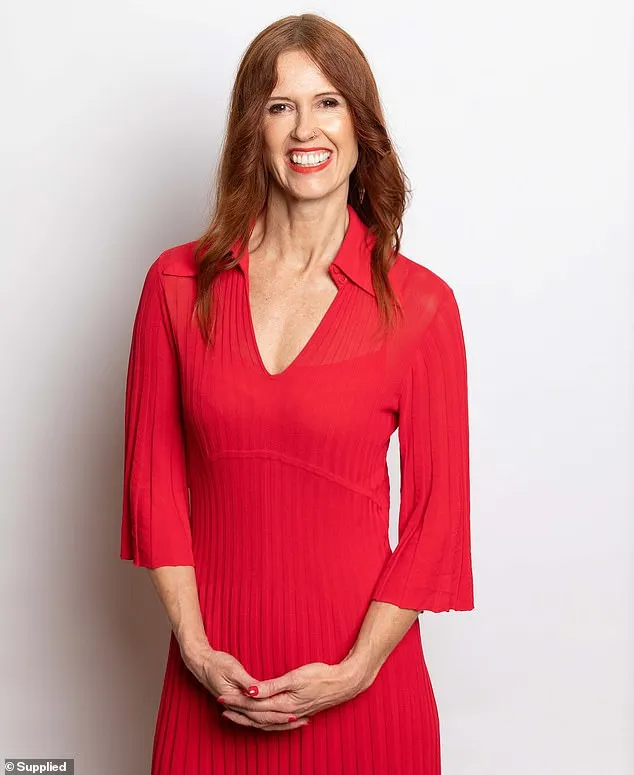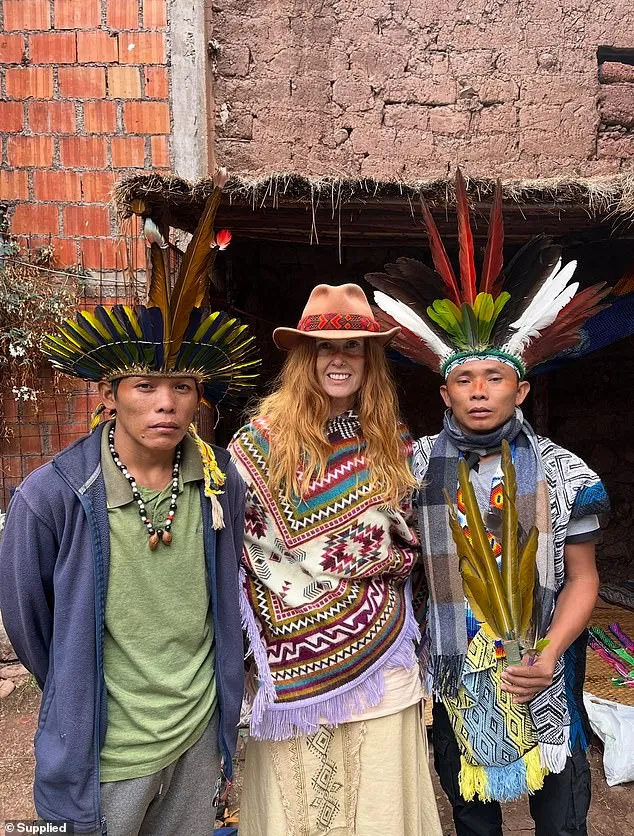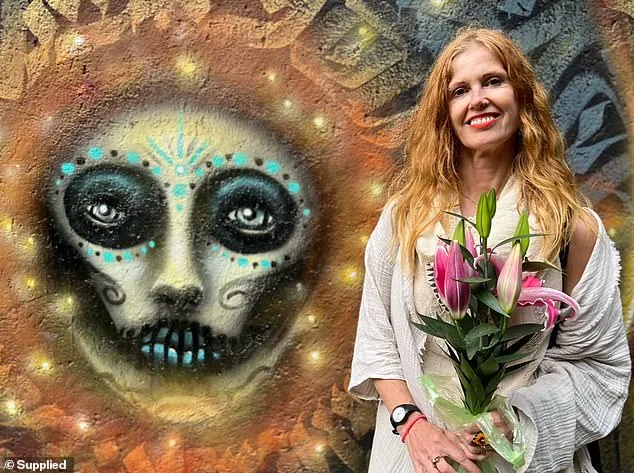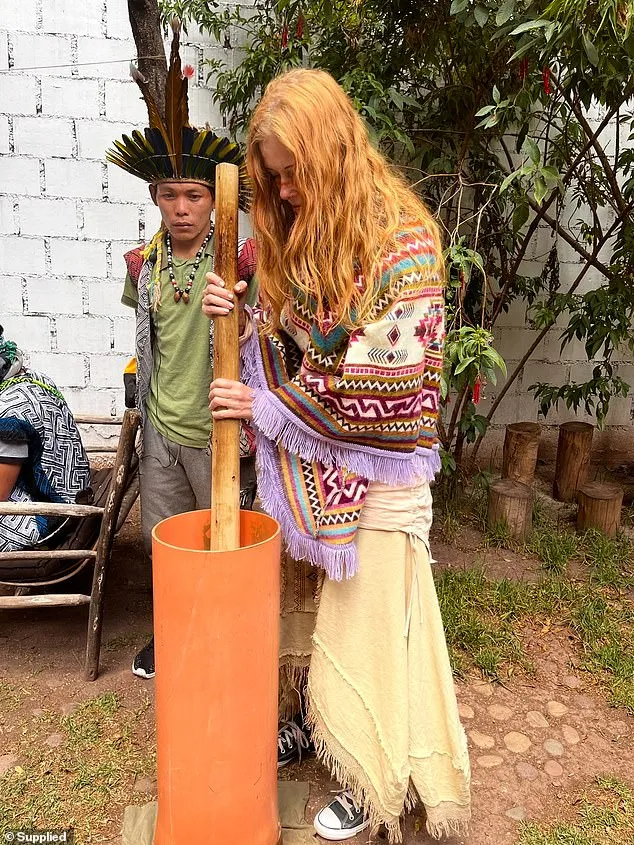Could This Radical Treatment For Depression Be The Solution For High-achieving Women Who Don’t Want To Be Numbed By SSRIs?
Could This Radical Treatment For Depression Be The Solution For High-achieving Women Who Don’t Want To Be Numbed By SSRIs?




uaetodaynews.com — Could this radical treatment for depression be the solution for high-achieving women who don’t want to be numbed by SSRIs?
Dr Catriona Wallace found purpose through work, leadership, running a business and being a leading voice in behavioural science.
In many ways, professional success became her ‘obsession’.
The well-recognised businesswoman – one of the ‘sharks’ on the popular TV series Shark Tank Australia – was a force to be reckoned with.
Yet the constant high pressure was causing stress and exhaustion.
Unbeknownst to her at the time, it was also transforming her into a different person entirely – a disconnected mother and absent friend.
‘I worked 16-hour days, seven days a week to manage the business. I was exhausted, stressed and had worked like a start-up founder for six years where the business becomes the obsession,’ the busy mother-of-five, from Byron Baytold Daily Mail.
‘Mentally and physically, I was fine, but my stress levels were extreme and I was soul-tired.’
When the Covid pandemic hit in 2020, her ASX-listed business Flamingo AI struggled and the share price started to plummet.
It got to a point where she barely recognised who she was anymore; however, she didn’t want to take SSRI antidepressants.
In 2020, prominent businesswoman Dr Catriona Wallace turned to psychedelic medicine
‘Many of my friends and other business colleagues were medicated with SSRIs – antidepressants and anti-anxiety medications in particular. My friends described these medications as effective but also as “chemical handcuffs” where they could not feel things deeply any more,’ she said.
Instead, Dr Wallace decided to seek out an alternative.
She turned to plant-based psychedelic medicine after selling her company in 2020.
Dr Wallace’s interest in psychedelics began in her late 20s after flying to America to work with a Native American elder who taught her about ‘Indigenous ways of healing and interacting with the world and with nature’.
When her friends started speaking of their own personal experiences ten years ago, she only became more curious. However, being a CEO of a publicly listed company, it ‘wasn’t the right time’ for her to explore.
‘I wasn’t ready to explore this medicine while managing such a high-profile career running a public company. I wasn’t sure what I might uncover or how it could change me and I had a deep fear of losing control,’ Dr Wallace writes in her new book, Rapid Transformation.
‘In 2020, I finally reached a pivotal moment. I was about to sell the business I had built and listed on the ASX. During the day, I led a shareholder meeting and we sold the company. The evening of that same day, I entered my first Ayahuasca ceremony.’
Ayahuasca, a powerful psychoactive brew from the Amazon traditionally used in shamanic rituals, has recently gained attention as an alternative treatment for depression and other mental health conditions.
‘In that first major psychedelic experience, I visited a shadow side of myself. I realised I was carrying a lot of trauma, which was influencing me not just as a leader, but also as a mother and friend,’ said Dr Wallace (pictured in Peru)
Dr Wallace turned off her computer at 2pm and went home to change from her corporate attire into her ‘hippie’ retreat outfit.
‘I had no idea what to expect. I expected to see some lovely colours and see a vision for my next chapter in life. I was quite sweet and naïve about it,’ she said.
Dr Wallace and nine other participants sat in the ceremony which began at 7pm and lasted until midnight.
The Ayahuasca, referred to as the ‘Grandmother Medicine’ or ‘the sacred medicine from the Amazon’, was consumed in liquid form.
What she experienced was something far greater than she ever could have imagined.
‘I took a good-sized cup of the medicine and even before it began to take effect, I found myself sinking into negative thoughts. I questioned what I was doing there, surrounded by strangers,’ she wrote.
‘As the medicine began to work, my discomfort deepened. The best way to describe the experience is that I felt like I was thrown into a washing machine of nausea and unease, tumbling headfirst into the gates of hell. I was forced to confront every unpleasant aspect of myself.
‘I saw my strong ego, deeply attached to reputation and identity. I saw how disconnected I was from my children, how I’d been a terrible friend to those who cared about me and how self-absorbed I had become.’
At first, Dr Wallace was in denial about what she saw. But as she sat with her thoughts, she understood that it was true.
‘This medicine really does humble you because you can’t get away from it. It shows you your true self and your behaviours. For me, I had a lot of shame and regret about that,’ she said.
‘I was overwhelmed, grappling with the realisation of the type of person I had become, driven by ego. When I woke up, I was still in tears, deeply upset,’ she said
The ceremony lasted seven hours and towards the end, she purged and vomited. While others seemed light and happy after the experience, Dr Wallace felt miserable.
‘I was overwhelmed, grappling with the realisation of the type of person I had become, driven by ego. When I woke up, I was still in tears, deeply upset. Meanwhile, everyone else was downstairs, sharing their stories with smiles and enthusiasm,’ she added.
In tears to the woman guiding the retreat, Dr Wallace said that she needed to leave but was urged to return to the tent and write in her journal about what she saw.
To her surprise, this helped clarify her thoughts.
She accepted being ego-driven, an occasional liar, and overly attached to her reputation. She also admitted her disconnection from loved ones.
The next day, it took all her strength to participate in the second part of the retreat.
‘Despite my fear, I agreed to try again. Finding light, I took the medicine on the second night, very nervously. But this time, it started with a more positive aspect. I was just asking for love, lightness and ease. The imagery I got was much lighter,’ she said.
The second time she took the medicine, she experienced a vision in which she was led to a beautiful white cathedral.
‘When you’re in the psychedelic experience, your eyes are closed and it’s like you’re there for real. It’s as if you have virtual reality goggles on,’ she said.
‘As I walked into the cathedral, there were these two huge flying silver dragons. I realised I was very small and insignificant in comparison to their wisdom and energy. It was a completely opposite experience from the night before.
‘When I came out of the retreat, I did a lot of work (on myself). I apologised to my kids for being away so much for work and how I hadn’t been there at times when they really needed me.
‘I apologised to my friends who I hadn’t done right by them because I was too busy.’
She also realised the importance of honesty.
‘In business, we lie all the time – it’s almost like an accepted practice. I thought I was a very honest person, but I wasn’t. I needed to change that,’ Dr Wallace said.
‘It was one of the hardest things I’ve ever done, but it was truly life-changing.
‘I was able to release that side of me which set me on this new path to start to explore the benefits of psychedelics – not just for mental health but for leadership too. For me, there was no going back.’.
From there, she changed her life from the inside out and also ventured to Peru to experience further Ayahuasca ceremonies.
Dr Wallace has experienced psychedelics both in Australia and Peru (pictured)
HEARTBREAK AND DESPAIR
Four years later, in July 2024, Dr Wallace was left heartbroken when a long-term relationship ended suddenly.
The couple were together for eight and a half years before parting ways, leaving Dr Wallace ‘in the hell realms of heartbreak and despair’.
‘It was really difficult. All my dreams and what I thought my future was (going to be) were suddenly gone,’ she said.
The pain from the break-up was immense, leaving her in a state of despair and anguish from which she could not escape.
After a month of grieving, she turned to a life coach who reminded her that the pain wouldn’t last forever and encouraged her to think of it as a period of transformation.
To remove herself from the misery, she turned to psychedelics once again – but this time went to Peru.
Unlike her experience taking Ayahuasca in 2020, which took hours to work, this time she received ’15 years of psychotherapy in 15 minutes’.
On this occasion she used Bufo alvarius (Five MeO-DMT), which is derived from toads, to help her process the relationship breakdown.
Rather than drinking it, it was inhaled ‘like a vape’.
Within 10 seconds, she noticed an instant feeling of relief.
‘My teacher encouraged me to sit with this medicine that I was already familiar with. I was able to fully dive through the heartbreak, fear, loneliness and broken dreams. I sat and cried in it,’ she recounted.
‘Within half an hour, I was back to full compassion for my ex-partner and for those who were worried about me.
‘The real insight I had was that my suffering was causing other people to suffer and so I wanted that to stop.’
From that day onwards, things shifted in a positive way.
‘That was probably one of the most profound experiences I’ve ever had in really healing this prolonged grief I was experiencing,’ she said.
Dr Wallace now hosts retreats in the depths of the jungles of Peru to guide others through their own personal struggles.
‘We have a really strong, strict pre-screening questionnaire where we ask about any medications you’re on, about your mental and physical health, and your history,’ she explained.
‘If people are on SSRIs, antidepressants, antipsychotic or anti-anxiety medications, we don’t allow them to participate.’
Dr Wallace says a growing number of doctors are supporting patients exploring alternative therapies, and she hopes for laws surrounding psychedelic medicine to relax in the coming years.
‘SSRIs sometimes just suppress symptoms. I do believe that these naturally occurring medicines can relieve the cause of suffering among those who have anxiety, depression and other mental health conditions,’ she said.
‘Another benefit is that these medicines typically aren’t addictive; you don’t become reliant on them.
‘I encourage people to keep an open mind and remain curious but always put your safety first.’
Disclaimer: This news article has been republished exactly as it appeared on its original source, without any modification. We do not take any responsibility for its content, which remains solely the responsibility of the original publisher.
Disclaimer: This news article has been republished exactly as it appeared on its original source, without any modification. We do not take any responsibility for its content, which remains solely the responsibility of the original publisher.
Author: uaetodaynews
Published on: 2025-10-24 14:17:00
Source: uaetodaynews.com


